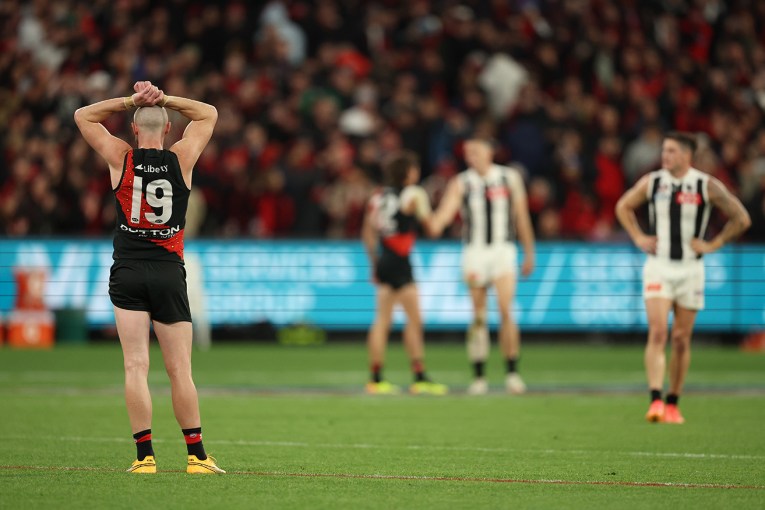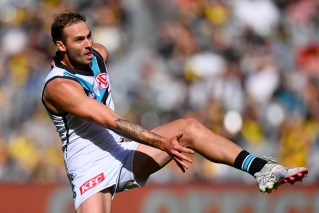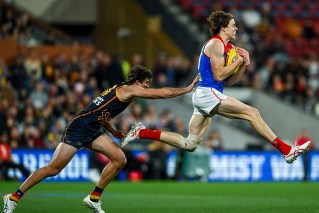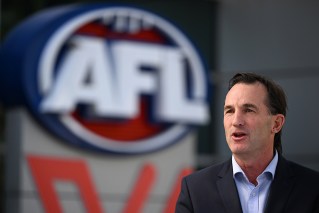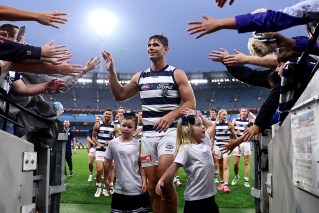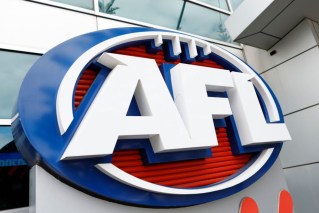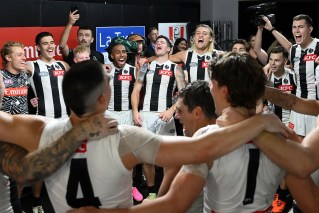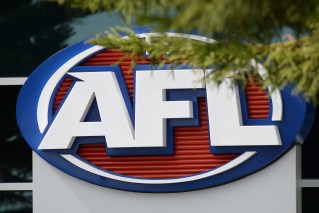Is this the most connected man in Australia?
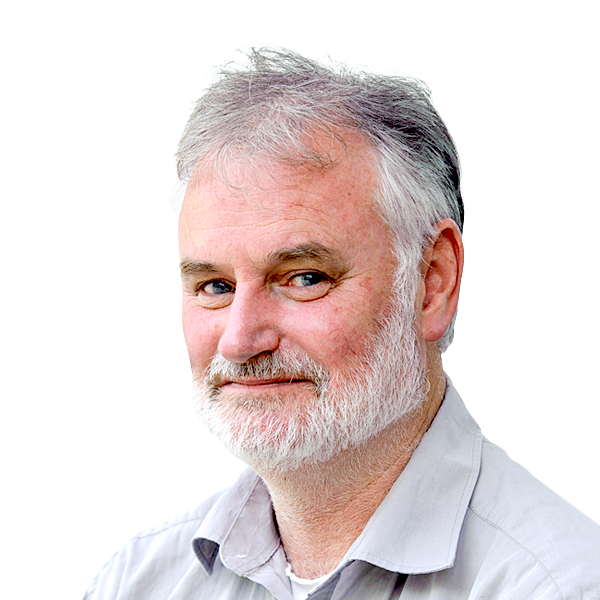
The Coodabeens’ talk back should be interesting over the next couple of weeks. No doubt Peter from Peterborough will be on the blower from his Western District estate parroting on about his beloved Cats and the virtues of ‘Young McLachlan’.
Peter and young Gillon McLachlan herald from the same side of the tracks, pastoral wealth and the public school. After thirty years Peter’s interests remain hazy outside the Cats, Grammar and whether the livestock are propagating. McLachlan’s are there for all to see and will come under closer scrutiny with his appointment as the new AFL CEO.

McLachlan is a former president of the Victorian Polo Club. Photo: Getty
He’s got big shoes to fill. The outgoing CEO, Andrew Demetriou, was a formidable presence and very successful. His tenure was marked by ambitious expansion projects, infrastructure development and revenue growth through lucrative broadcast rights deals.
A man of undeniable abilities – and there can be no doubt McLachlan was an outstanding candidate who earned the position on merit – he has drawn on his family’s extensive network to climb the AFL ladder.
There have been the occasional hiccups. Melbourne’s tanking disaster, Bombergate and most recently, the ticketing fiasco come to mind. As Demetriou’s second, McLachlan’s fingerprints are on all of these.
But at his press conference he was in no mood to dwell on the past, dead-batting questions on his knowledge of Essendon’s payments to Hird during his suspension. This was a day for considering the future, McLachlan announced.
McLachlan’s no Demetriou. His father, Angus, runs a merino sheep property, Rosebank, near Mt Pleasant in Adelaide’s hills. One of four sons, McLachlan boarded at his father’s old school, Adelaide’s elite St Peter’s College, and completed degrees in commerce and law at Adelaide and Melbourne Universities, respectively.
While at Melboune University he played with University Blues, and was good enough to spend a brief spell on Carlton’s supplementary list in the mid-1990s. His other sporting passion is polo. A good horseman and player, McLachlan has served as President of the Victorian Polo Club.
A man of undeniable abilities – and there can be no doubt McLachlan was an outstanding candidate who earned the position on merit – he has drawn on his family’s extensive network to climb the AFL ladder. In 2000 he was plucked from the consultancy firm Accenture, by the then AFL CEO, Wayne Jackson, to work as his executive assistant. Like McLachlan, Jackson was a product of the Adelaide public school system, Prince Alfred. He also has farming interests and is acquainted with the McLachlan family.
McLachlan also married well. While at Melbourne University he met Laura Blythe. Her father, Brian, was a director of the Spotless Group from 1978 until 2007. He chaired the Group from 2004-07, and made the BRW Rich List in 2005 with an estimated wealth of $145 million.
A fellow Spotless director was Ron Evans. He served as managing director between 1992 and 2004. A former Bomber champion, Evans also was on the AFL Commission from 1993 to 2007. For the last nine years of his term, Evans chaired the Commission.
He’s got enough nous to peddle the man-of-the-people line. His press conference was a master-class of footy inclusiveness.
During Evans and Blythe’s time at Spotless, the Group secured a number of contracts with those involved in the footy industry. A Group subsidiary, Nationwide Venue Management, ran Docklands Stadium in its early days, while Spotless has cornered the catering contract at the ‘G for the last 36 years.
As a Spotless director and AFL Commissioner, Evans had obvious conflicts of interest in both deals. The catering contract is up for tender again in 2016, and there should be no conflict this time for McLachlan. Spotless was sold to Pacific Equity Partners in 2012 for $723 million.

Gillon’s uncle Ian McLachlan was involved in the deal to bring footy back to Adelaide Oval. Photo: AAP
On the other side of the family, McLachlan’s uncle Ian was good enough to play cricket for both Cambridge University and South Australia. He even carried the drinks for Australia in the 1962-63 series against the Englishmen. Gillon’s father, Angus, was also a handy cricketer. He too played for Cambridge during the mid-sixties, but returned to the farm, while Ian went on to lead the National Farmer’s Federation and serve as Defence Minister in the Howard Government.
McLachlan’s no Eddie or Demetriou. The Broadie boy and son of Cypriot immigrants had no leg-up in life. McLachlan did. His rise exemplifies how elite power networks do business.
In 2004 Ian became director of Cricket Australia. He also served as President of the South Australian Cricket Association (SACA). While in this role, he entered into discussions with the AFL over football’s return to the Adelaide Oval. Though he stood down from the presidency in June 2013, he continued on as chair of the Adelaide Oval Stadium Management Authority, handing over to the former South Australian premier, John Olsen, a few days ago.
McLachlan and his nephew were behind the negotiations to bring footy back to Adelaide Oval. It was a fraught but partly family affair. In 2008 Gillon was appointed the AFL’s chief operating officer. His brief was overseeing the League’s new stadium deals. McLachlan raised the Adelaide Oval issue with the then South Australian Liberal leader, Martin Hamilton-Smith, who took it up with uncle Ian at the SACA.
Gillon was also behind the construction of the Gold Coast Sun’s Metricon Stadium and the home of the Giants, Spotless Stadium. Again family connections were close to the surface. In announcing the deal, Spotless CEO Brian Dixon said, “[we] have AFL in our veins.” Evans was one of the company’s “founders”, Dixon added. He neglected to mention another was McLachlan’s father-in-law.
Caroline Wilson suggests Collingwood president and Melbourne media celebrity Eddie McGuire anointed McLachlan. According to Wilson, McGuire holds unprecedented power within the AFL and gave McLachlan’s appointment his blessing.
As formidable as Eddie is, he doesn’t have McLachlan’s connections. McGuire’s new wealth and his power stems from his interests in sport, media and entertainment, albeit in a limited market. McLachlan’s power stems from old pastoral wealth and the establishment. This is the wealth that anoints PMs and state premiers, and lunches with kings of industry and pastoral barons at elite clubs.

Andrew Demetriou says he feels like a something of a father-figure to Gillon McLachlan. Photo: Getty
The McLachlan tale contrasts sharply with those of McGuire and Demetriou. The Broadie boy and son of Cypriot immigrants had no leg-up in life. McLachlan did. His rise exemplifies how elite power networks do business. McLachlan has used his network to not only rise through the AFL ranks, but to breakdown long-held antagonisms and take the game into new frontiers. Just look at the Adelaide Oval deal.
The Essendon peptides saga still has a long way to run, and McLachlan and Demetriou’s roles in the AFL’s botched process deserve greater attention.
He’s got enough nous to peddle the man-of-the-people line. His press conference was a master-class of footy inclusiveness. He would govern for all stakeholders – the fans, the clubs, the players and the community. He would bring prices down, but not at the expense of the new preferential seating arrangements. He knows the price of beer and a bucket of chips at the ‘G are too high. He feels the punter’s pain and is determined to do something about.
Such spin can’t mask the unpalatable fact that McLachlan faces significant challenges. The Essendon peptides saga still has a long way to run, and McLachlan and Demetriou’s roles in the AFL’s botched process deserve greater attention.
But his real problem will be meeting the ambitious aim of making footy the national game. The AFL and NRL crow about their expansionist plans, but neither have had significant cut-through in the other’s market. The Barassi line still demarcates the real divide in this country between rugger and rules.
The test will be the western Sydney market. Though the AFL remains the biggest national code, it’s a minnow beyond the Gladesville Bridge. Two of the nations’ more valuable sporting brands – the NRL’s Penrith Panthers and the Canterbury-Bankstown’s Bulldogs – rule out there. Indeed, the Panthers’ brand value exceeds that of the Pies’.
Add the A-League’s Wanderers into the mix and you begin to see that McLachlan has a considerable problem. In early March, the hottest ticket in town was not the AFL’s ‘battle of the bridge’, or any of the NRL games, but the Wanderers-Sydney FC derby.
Given the cluttered footy market in Sydney’s west, McLachlan’s stated aim of a fully national game seems overly ambitious. Whether this will be achieved depends on the Giants’ ability to win games, crowds and television viewers, and not McLachlan’s network.
If he just happens to pull it off, Peter from Peterborough’s crowing about ‘Young McLachlan’s’ virtues will be well and truly justified. McLachlan can then step from Demetriou’s formidable shadow.
Dr Tom Heenan teaches sport studies at Monash University
